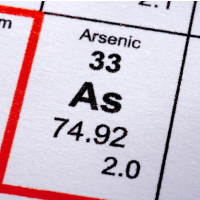Court Rebuffs State, Lets Battery Recycler Stay Open and Test for Neighborhood Pollutants

Any feelings of relief were short-lived for neighbors of the Exide Technologies battery recycling plant in the middle of Los Angeles County when the state Department of Toxic Substances Control (DTSC) ordered the facility closed in April after the South Coast Air Quality Management District (AQMD) ordered the company to reduce arsenic emissions.
Exide appealed to the Los Angeles County Superior Court—arguing the arsenic stuff was already taken care of and other accusations were just political posturing—and was allowed to stay open pending a hearing on the claims.
A statement (pdf) by Brian Johnson, DTSC’s deputy director of hazardous waste management program, probably didn’t make the residents of Vernon feel any better. “We want to bring assurance to the community that if contaminants from the facility are in their yard, Exide will clean them up,” he wrote on Tuesday about a testing program Exide was ordered to undertake.
Beginning this week, the company will collect soil and dust samples in nearby neighborhoods for a month in anticipation of a court hearing later in the year on a possible plant closure.
The DTSC ordered the shutdown after reports showed that the plant’s “underground hazardous waste-degraded pipelines are out of compliance with California's stringent hazardous waste requirements, and are releasing toxic metal-bearing water and pose a risk to the environment.” The AQMD said the plant posed an elevated cancer risk to 110,000 nearby residents.
Exide, one of the world’s largest battery recyclers, filed for bankruptcy in June. The company struggled with the price of scrap lead and problems with its European operations, which account for 51% of its revenue. Walmart also ditched Exide as its exclusive battery supplier in 2010.
The Vernon plant has been in operation since 1922 and currently melts down up to 40,000 batteries a day. Until recently, the great concern has been about the plant’s lead emissions. But AQMD had been hunting since 2010 for the source of high levels of arsenic it detected in the area. It took two years to point a finger at Exide for what it considered an elevated risk of cancer to nearby residents.
The state’s Toxic Hot Spots program, initiated under Assembly Bill 2588 in 1987, requires sources of pollution to notify the public if the calculated health risk to humans is 10 in 1 million or more. If the risk is 25 in 1 million or more, the facility has three years to come up with a solution.
Exide’s calculated risk is 156 in 1 million.
The search for lead contamination could lead to two nearby schools, San Antonio Elementary in Huntington Park and Salazar Park Head Start in East L.A.
Exposure to lead causes permanent brain damage and about half a million American children have too much of it in their system. Lead lowers IQs, causes learning disabilities and has been linked to criminal behavior. It has also been linked to stunted growth, seizures and a range of maladies.
–Ken Broder
To Learn More:
Exide to Begin Testing for Dangerous Metals Buildup in Neighborhood (by Jessica Garrison, Los Angeles Times)
Exide—International Battery Maker and Accused L.A. Polluter—Files for Bankruptcy (by Ken Broder, AllGov California)
110,000 in Los Angeles Area Exposed to Arsenic Emissions from Battery Recycling Plant (by Ken Broder, AllGov California)
- Top Stories
- Controversies
- Where is the Money Going?
- California and the Nation
- Appointments and Resignations
- Unusual News
- Latest News
- California Forbids U.S. Immigration Agents from Pretending to be Police
- California Lawmakers Urged to Strip “Self-Dealing” Tax Board of Its Duties
- Big Oil’s Grip on California
- Santa Cruz Police See Homeland Security Betrayal in Use of Gang Roundup as Cover for Immigration Raid
- Oil Companies Face Deadline to Stop Polluting California Groundwater





